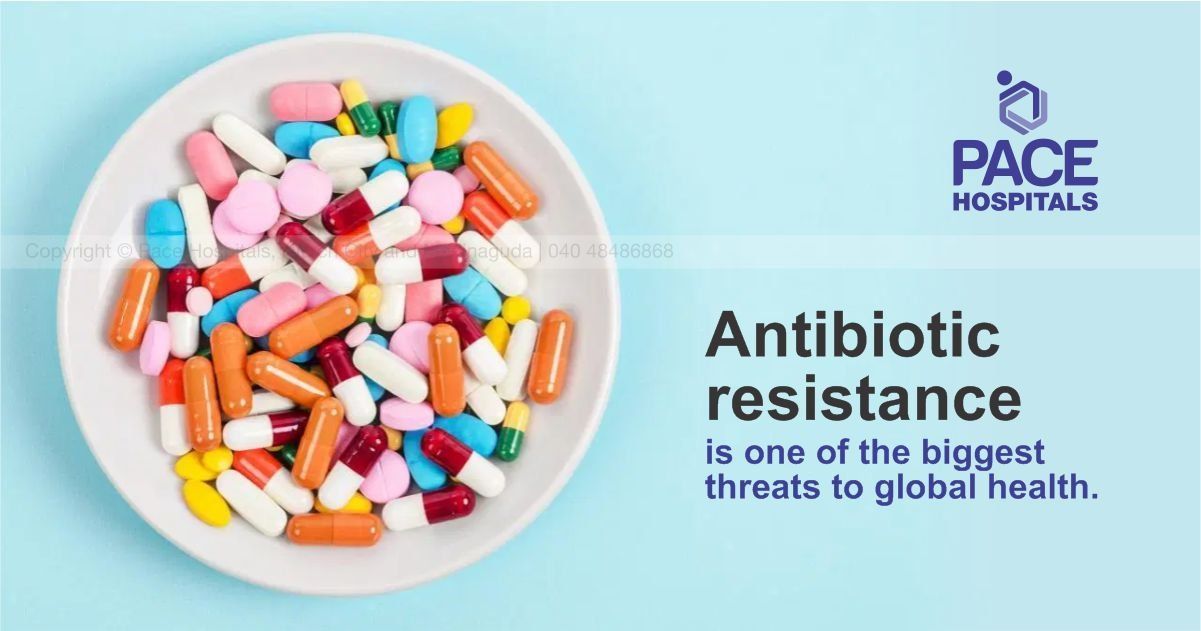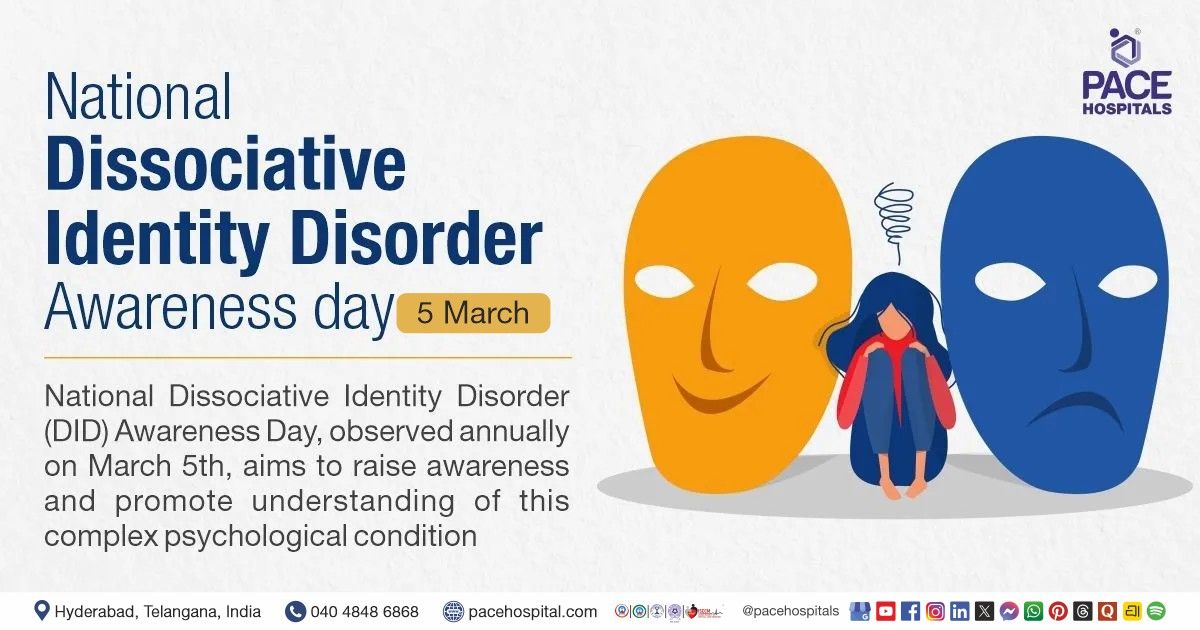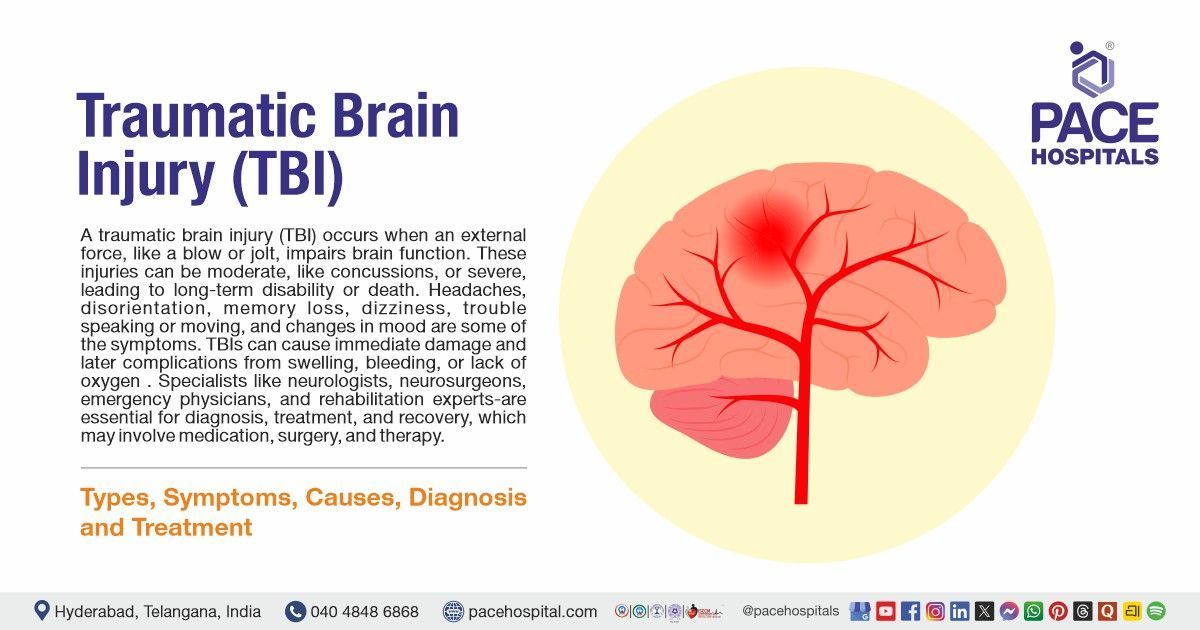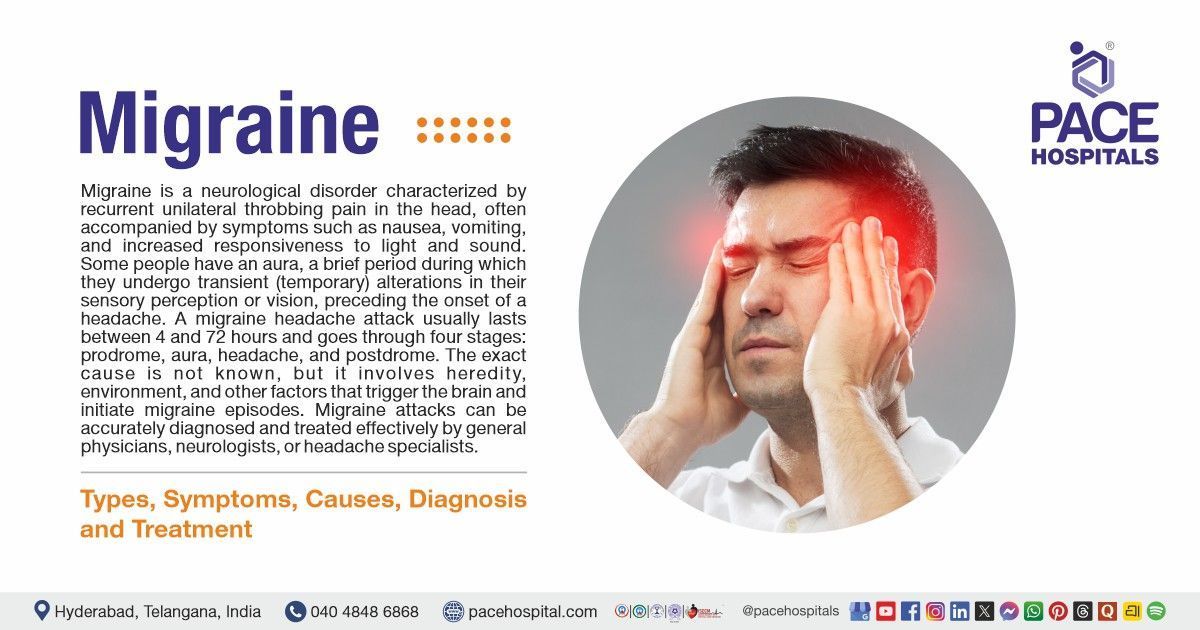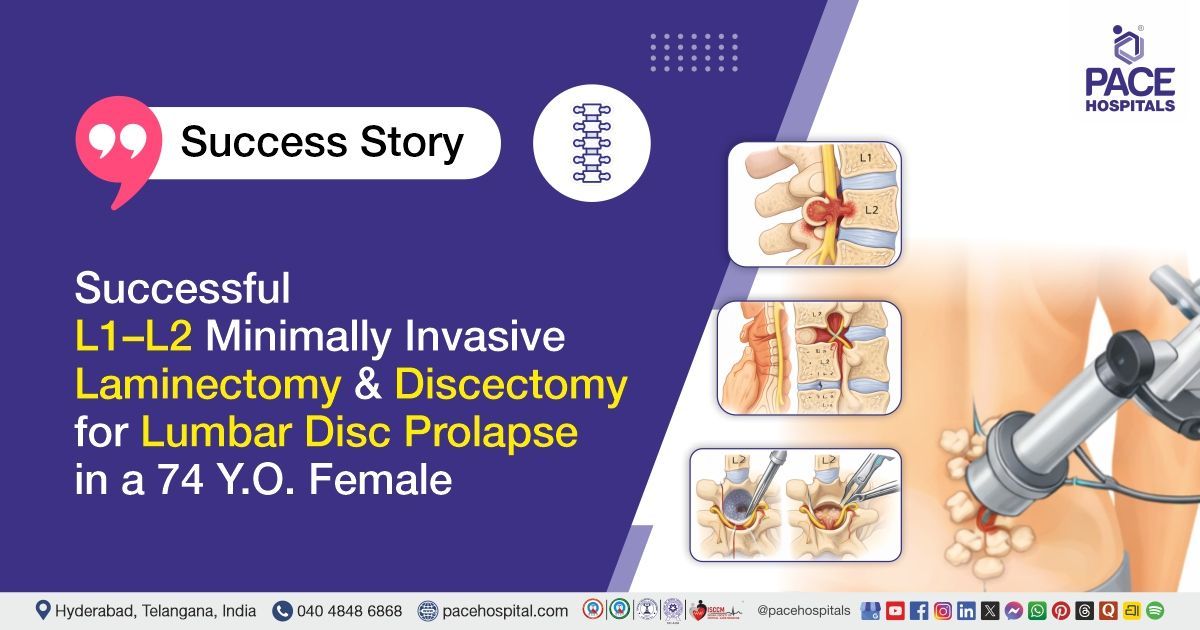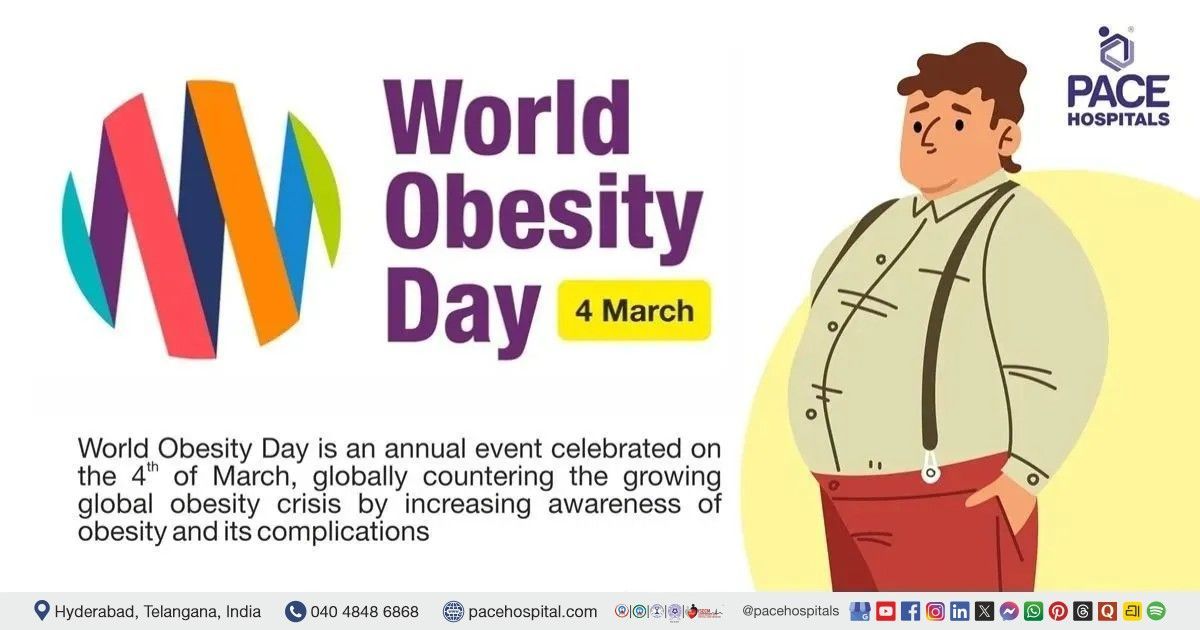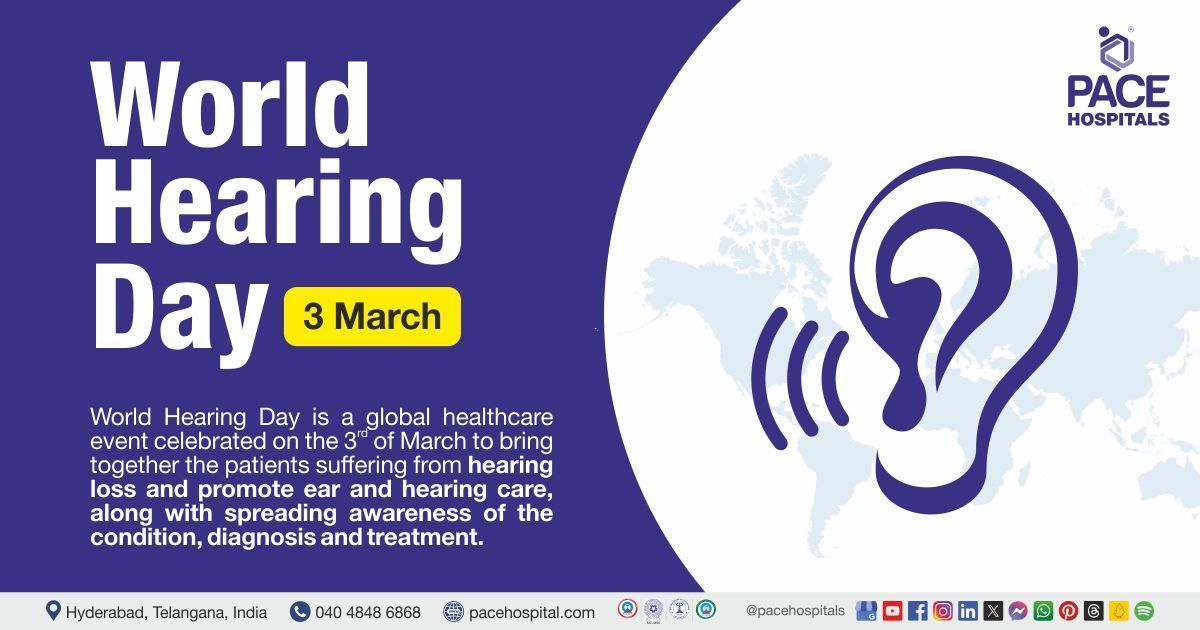Antibiotic Resistance is one of the biggest threats to Global Health
PACE Hospitals
What if I were to tell you that a decade down the line, rather than make great advances in medicine, we in India may be pushed back into the pre- antibiotic era before Alexander Fleming discovered penicillin? Mortality rates due to severe sepsis could be greatly increased even for presently treatable infections and in routine surgeries like it was back in the 19th century. Only difference would be that in that era there were bugs and no antibiotics to treat them while the scenario staring at us one with superbugs with no antibiotics as they are resistant to all available antibiotics. Now and then we read scary news articles about a ‘deadly’ superbug we view with vague concern, but like some stray terrorist attack or a cyclone in Haiti. its someone else problem somewhere else and somebody should do something about it, not me. Thats all about change. There is a storm approaching but our heads are buried too deep in the sand to realise it. By us I mean the doctors and other myriad practitioners and administatrators of health care in this country.
Some facts first- ESBL's (extended spectrum betalactamases) are bugs which are resistant to all our commonly used antibiotics namely penicillins, cephalosporins and quinolones ( such as ciprofloxacin , ofloxacin etc). Due to the decades rampant use by all and sundry starting at the community and primary health care level all the way to the tertiary health care level, the incidence of ESBL'S has reached alarming proportions. From General practitioners to registered medical practitioners to quacks every prescription contains an antibiotic be it a viral fever a cold or a minor cut. Leave alone practitioners most people keep a stock of antibiotics at home and self medication is widely prevalent . In secondary and tertiary level centers, antibiotics are routinely over prescribed. For many elective surgeries where a single dose of antibiotic suffices the patient gets a week's course of antibiotics and some more at the time of discharge. Many patients are on 3 or more antibiotics at once and most patients irrespective of medical condition are discharged with a week's course of oral cephalosporins or quinolone for no clear indication...’just to be safe’.
After decades of abuse the prevalence of ESBL'S in our tertiary care govt and private hospitals is 80- 90%. Shockingly in South Asia even in community acquired infections the incidence is 40 to 60%. So in the critically ill patients these widely used antibiotics were virtually of no use and all we had left is a newer group of expensive antibiotics called carbapenems and piperacillin covering our backs in the 90's.
Phase two of the problem started then. In most of the developed world the usage of these so called higher end antibiotics is tightly regulated. In the Uk the usage of higher antibiotics like carbapenems is outside purely doctors jurisdiction. It needs to be approved by the hospital infection committee which decides if its truly indicated and permission renewed every 48 hrs. The reason for this is that the doctor is concerned about that individual patient but the system ensures evidence based control of antibiotic usage to ensure they are prevent emergence of resistant bugs. Unfortunately in our system no such checks exist.
Throughout the past decade all the secondary and tertiary care hospitals wide spread usage of carbapenems occurred. Several reasons for this - a general panicky and casual rather than scientific approach by the practitioners, aggressive promotion by pharma companies and hospitals due to the high cost of these antibiotics, half-knowledge about the indication and rationale for their usage. ‘ VIP patient’,’Lets not take a chance in my patient’, ‘Resistance is not my problem as of today’, ‘don’t understand whats going on with patient lets start higher antibiotics’- these are some of the common reasons given by doctors for unindicated and prolonged usage of carbapenems. For example for a very expensive carbapenem molecule like Meropenem which costs between 7 -10,000 Rs a day, there are about 25 companies with license to sell . The marketing departments of each of these companies are under tremendous pressure to achieve margins by hard selling them to doctors and offering ever increasing ‘margins’ in the pricing to entice the hospitals to increased usage.
The end result we now have super bugs resistant to all antibiotics and metallobetalactamese resistant to the most powerful of all the carbapenems. The resistance to carbapenems has touched 50% in our tertiary care hospitals where the critically ill patients are fighting life and death battles against infection. Especially in the the ICU scenario and in transplant we have several situations in which all available antibiotics are useless and we face a losing battle. Now all we have in these patients is an old antibiotic called colistin and another called tigecycline which are saving our necks in these patients. Unfortunately these are only bacteriostatic( that control) rather than bactericidal (which eradicate). Emergence of resistance to these last men standing is already rapidly emerging in our tertiary care centres.
So now what if I again told you that we are going back to the preantibiotic where we don't have antibiotics and health care is helpless against infections, transplants become unviable due to superbugs. You still wouldn't believe me right. Medicine is making rapid strides, you would say. Like piperacillin came for pseudomonas, carbapenems for ESBL's a new group of antibiotics will come at the right at the right time like a knight in shining armor to rescue us, right?
Wrong! And the reason is how the massive pharmaceutical industry works. No new molecule has come out of the developing world. All the newer antibiotics in fact most drugs are by pharma majors in developed countries the US, Europe and Japan. They are two types of bacteria gram positive and gram negative. The gram negatives are cause the majority of the critical infections. ESBL'S are the drug resistant gram-negative infections which are seen upto 90% in tertiary and critical care units in India. The prevalence of ESBL'S in the developed world is 3 to 5percent due to strict regulation of antibiotic usage at policy level and at the hospital level. Even in the large tertiary care centres where I worked basic antibiotics like augmentin are used in critical areas like transplant prohylaxis due to low incidence of ESBL’s and use of higher end carbapenems is infrequent and tightly regulated. They are more worried about MRSA (Gram-positive infections) and clostridium difficile infections which are less of a problem for us compared to ESBL's. For this reason there is large pipeline of newer drugs for MRSA in next couple of decades.and there is no new group of antibiotics in pipeline in foreseeable future for ESBL'S.
Developing a new antibiotic requires about a 5 to 10 billion dollar investment for drug research and clinical trials. And it's a very risky investment as many drugs do not finally reach market due to adverse affects during trials and other approval and regulatory issues. Also let's say you are a pharma majors...would you like to put that much of risky bet on a cardiac / diabetic /cancer drug vis-a-vis a new antibiotic. A cardiac drug like amlodipine or diabetic drug like metformin which came in more than 50 years ago is still doing roaring sales while an antibiotic like piperacillin which cost same money to develop is becoming redundant within 20 years due to resistance.
So if I was a pharma major, would I like to spend on antibiotics for ESBL'S when there is no market (due to low prevalence in developed world) , high risk with short shelf life and early redundancy ( due to antibiotic resistance). So There are NO NEWER FAMILIES OF ANTIBIOTICS for gram negative bacteria IN THE FORESEEABLE FUTURE (alteast next 25 years). The problem is immediate and especially imperative for people dealing with tertiary level health care who would be left helpless with no tools to fight severe sepsis.
What are the measures we need to take to avert crisis?
Over the counter and unregulated prescription of antibiotics should be banned. Hospital infection control protocols should be strictly enforced with random checks and penalties. Education of MBBS, postgraduate students and re-education of practicing doctors about the menace of resistance should be undertaken. Many MBBS graduates I interview don't know even know what abbreviation of ESBL stands for. The scientific rationale of the when and why of antibiotic usage, which antibiotic for how long should be should be undertaken by setting up disease specific and region specific protocols. Hospital infection control teams have to be set up and prescription of higher end antibiotics should be tightly regulated and usage reviewed every 48 hrs ...egos should be set aside and the writ of the hospital infection team should overrule the doctor if usage is unindicted.
Unfortunately like most other areas in the country. The rule book and systems are well in place but the implementation is zilch. Like in the case of environment problem is the lack of awareness and casual attitude of looking only at the short term picture. Education , strict regulation and change in practices over a very long sustained period is the only way to improve the situation. Lets wake up to the problem and take cohesive action before it becomes insurmountable and we are driven back into the jurrasic (preantibiotic) era of health care. IF and when that day comes whatever we do will be too little too late like locking the house after burglars have left the building.
Share on
Request an appointment
Fill in the appointment form or call us instantly to book a confirmed appointment with our super specialist at 04048486868

